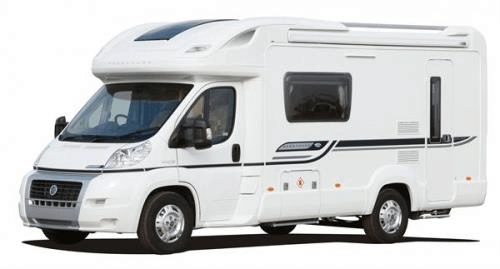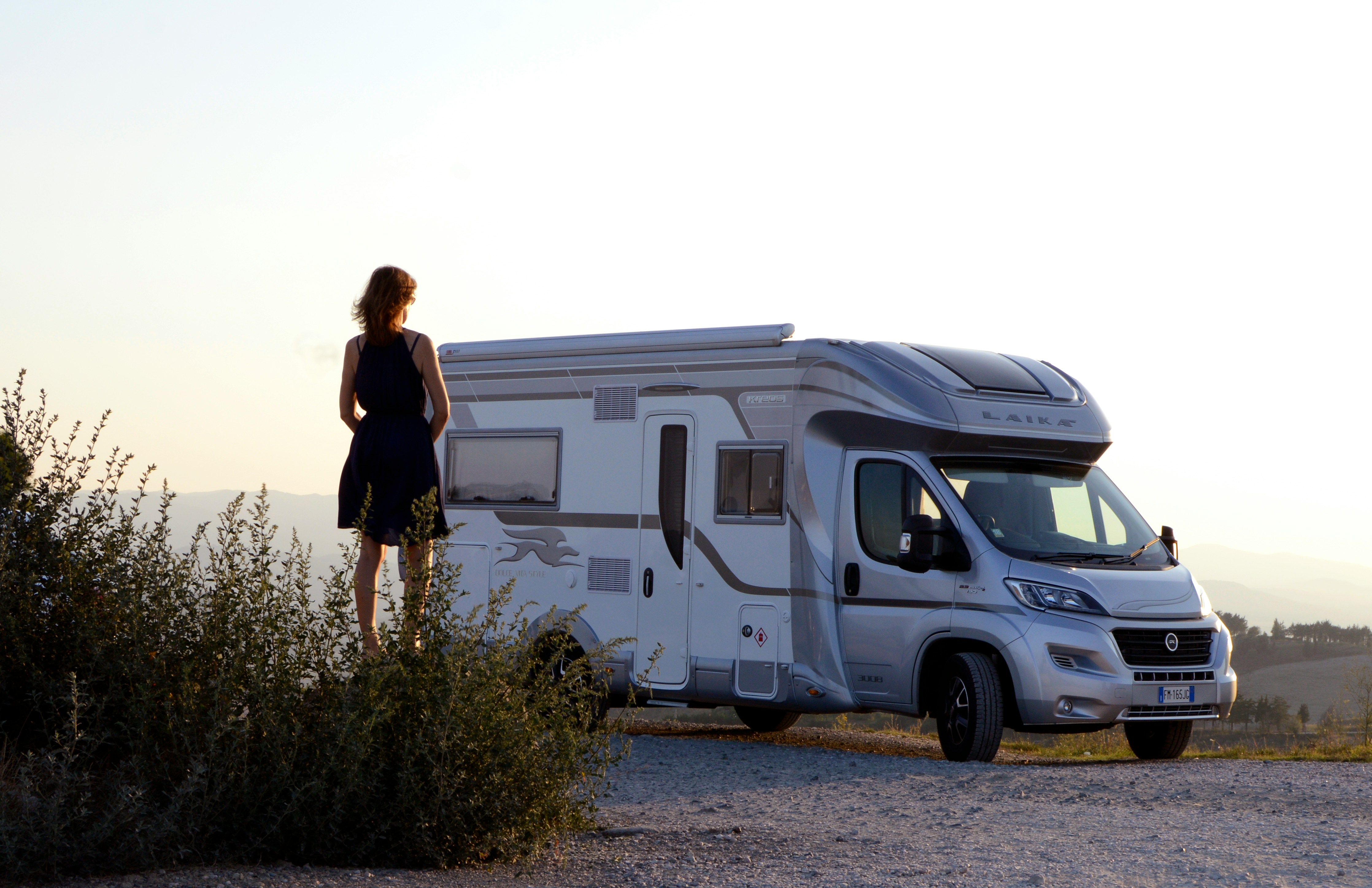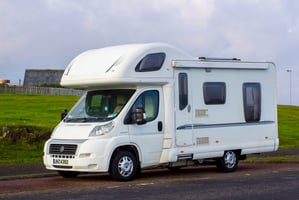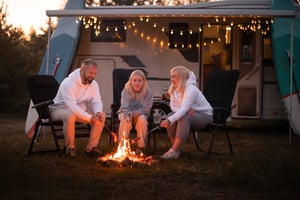Like any vehicle, a motorhome relies on its engine and associated parts running smoothly for things...
Are you - like an increasing amount of people - thinking of living in your motorhome as a long-term prospect? Whether it’s because of the sudden freedom felt by a newly-acquired empty nest, or because the cost of living has increased, there is definitely a pull towards this type of nomadic living that is starting to appeal to many. Embarking on a full-time motorhome adventure is an enticing prospect, offering freedom and flexibility. However, like any alternative lifestyle choice, it does come with its own unique set of pros and cons. In this blog post, we’ll explore some of the common ups and downs of living full time in a motorhome in the UK.
So, what are some of the pros?
1. You have the freedom to roam
Living in a motorhome can mean waking up to a new view every day. The open road becomes your backdrop, and you have the freedom to explore diverse landscapes and cultures, country-wide. If you turn up somewhere and it’s not for you, then no matter! Tomorrow is a new day, with a new outlook. And alternatively, if you regularly revisit places that you have been before, you will get to know the areas well and know what to look forward to when you return.
2. It can contribute to cost-effective living
While the initial setup costs for a motorhome can be significant (for example, buying the vehicle; acquiring the necessary equipment; making any adjustments to the interior), it often proves economical in the long run. You will likely see reduced utility bills, and the ability to heat your living space and cook your meals with fewer energy costs can significantly cut down on your daily living expenses. You may also find you buy less food and clothing, as you’ve less space to store it in.
3. The joy of the minimalist lifestyle
Embracing life in a motorhome forces you to simplify. It encourages a minimalist mindset, helping you appreciate experiences over possessions. Many people report that they feel more joy from the reduced time spent on tidying and cleaning! You can come and go as you please, and you are not tied down to any one place.
4. There’s a greater connection with nature
Living on wheels can definitely bring you closer to nature. Everything slows down, partly because most things take longer to achieve on the road. Waking up to scenic views and having the flexibility to camp in beautiful locations fosters a deep connection with the outdoors. Remote working can become a thing of beauty (as long as the weather is nice!) Imagine settling down into a cosy corner with your laptop, with the doors and windows open, the breeze gently wafting in and a pot of coffee on the go…
5. You will likely have to put yourself out of your comfort zone...
And that is a great thing to do, in life in general. You will need to learn basic vehicle maintenance, if you want to keep your costs down. If you are on your own, it can be a bit harder to find ways to socialise and you may need to start making more of an effort in introducing yourself to people you meet, in order to prevent any loneliness along the way. By the way, there are some great ways to network with other van-lifers - Facebook groups in particular are one of them - and most people on them are eager to help and give advice, from where the best stealth parking spots may be, to the best way to charge your leisure battery. Try the Facebook groups 'Motorhome Madness' and 'VanLife - UK' to get yourself started.
And how about some of the cons?
Bear with us, we know this section might look a little more weighted, but we really want you to think about the realities of full-time van life, because we have heard plenty of eyebrow-raising stories in our time!
1. There is limited space available
This goes for your living space, your cupboard space and your mental capacity for having patience. The compact living space in a motorhome can make daily life challenging, especially for those accustomed to larger homes. Storage is at a premium, and organising clothes, equipment, utensils and even things like toys efficiently becomes a crucial skill. To counter the lack of available space, investing in good storage systems is a must. Declutter as much as you can before you embark on full-time motorhome living, and have regular clear outs of unwanted stuff. We’ve seen some amazing makeovers for campers and motorhomes recently, such as hidden tables that also function as beds - this is definitely your time to be creative!
2. There are potentially some hidden or surprise costs
Like all vehicles, motorhomes require regular maintenance, and unexpected repairs can be costly. It’s vital to factor in the ongoing expenses for fuel, insurance (make sure you make it clear that you are living in your motorhome full time), tax, MOT, repairs and maintenance, as well as daily costs such as campsite fees, power and heating. Do you know what you would do if you break down? Have you got a suitable level of cover in the event that you do? What will you do if the motorhome develops damp? If the weather is really bad, would you need a back up in terms of living accommodation, even for a few days? These are all pertinent things to consider when it comes to budgeting.
Have you thought about joining a gym? It may be another cost, but there are some really good benefits to be had. You can have a hot shower, which might come as a relief if you've been lacking in water (yes, finding water when on the road can be a real hassle sometimes!), you can use it as a place to stay warm when the weather is really bad, and you can use it to exercise and socialise. If you join a chain, look into whether your membership is valid across the country, so that you know there is always somewhere you can head for on your travels to meet the aforementioned requirements.
3. The legal considerations in the UK
When it comes to living in a motorhome in the UK, it’s crucial to understand the potential legal requirements. Councils may have their own restrictions on overnight parking on public roads, and some areas may have specific regulations regarding long-term stays. Always check ahead so that you don’t get caught out, and have a look at apps such as Park4Night which will help you find places you can legally park at. If you are going to stay in a fixed location, you may also need to pay council tax, and if you haven’t got a main residence to which a TV licence is registered, you might need to buy one of those if watching TV in your motorhome - again, check this out in advance.
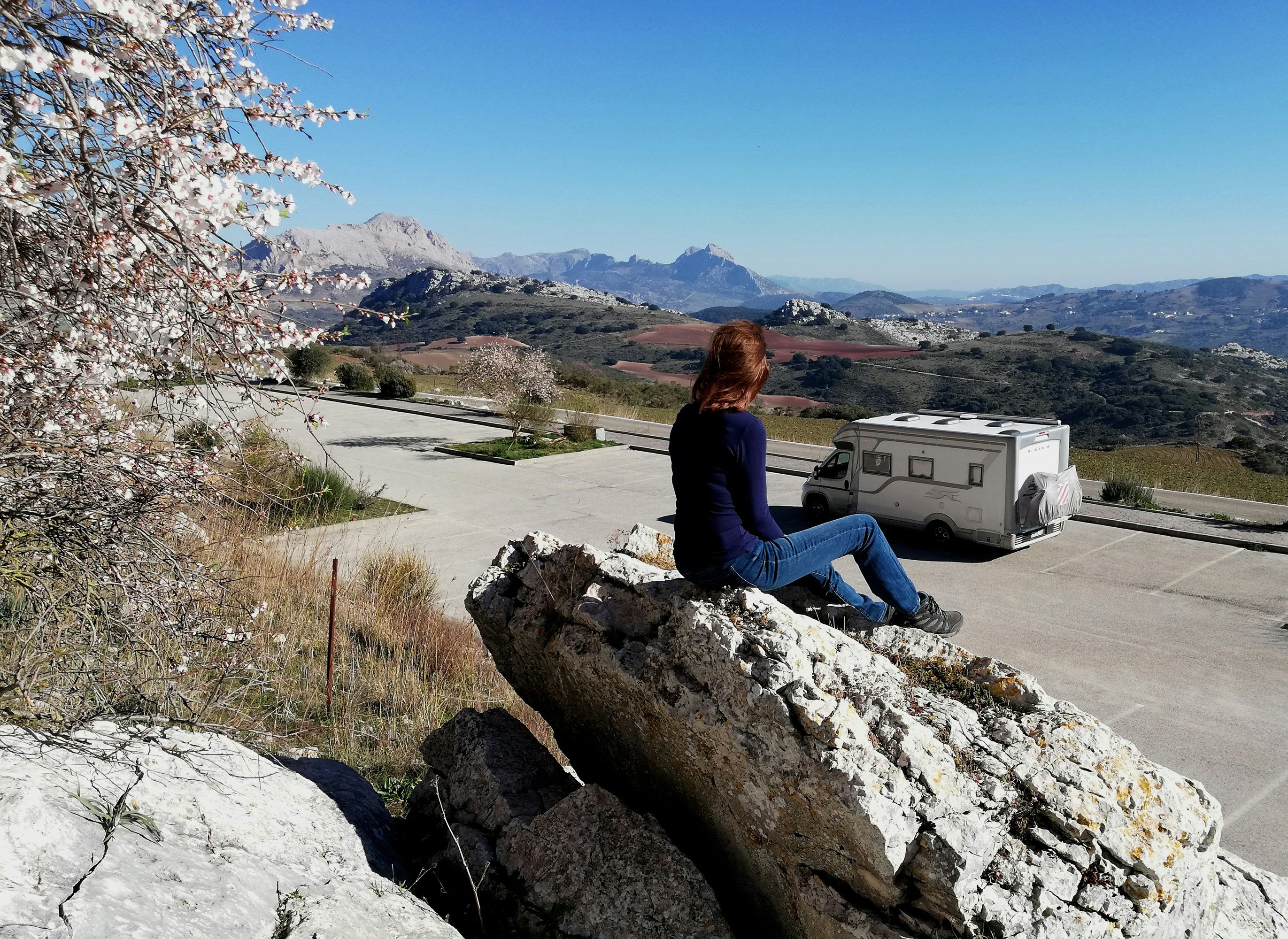
4. The difficulties associated with a lack of fixed abode
Have you thought what you might do about receiving your post? What about registering for a doctors’ surgery and dentist? Can you get to and from work ok, if the motorhome is both everyone’s home and mode of transport? Can you make sure that you will always have access to the facilities that you will need, for example wifi and water? Talking of water... do you know how you are going to find this? You might have access on a campsite or at service stations, but what will you do if you are in a more rural area for a few days? This needs to be planned ahead.
Just a note also on looking after your possessions - put any valuables into a safe if you can. We would suggest getting a decent tracker fitted, as it may well be that your vehicle contains all your possessions and you wouldn’t want to see them disappear in the unfortunate event that your motorhome gets stolen.
This is a tough one, but we'd be wrong to not mention it. There can sometimes be a negative perception of van-lifers, which is sad but true. Perhaps the few have made it hard for the many - you know the people, who park in nature reserves that are not for parking in, who play loud music and leave their engines idling whilst annoying the locals. Unfortunately, that stigma is there, and perhaps the only way to get round that is to be the respectful motorhome owner, who doesn't leave a trace, and who buys the local honey from the corner shop whilst smooth-talking the farmer's son who might let you park up for the night (yes, the one that is £7 a jar. We've all been there.)
5. You will likely have to put yourself out of your comfort zone...
Yep, we know this was mentioned above in the pros section, but it does work both ways! So where to start? Ok, deep breath.
It will, at times, be freezing. Your teeth might be chattering their own little symphony and you might even think a few fingers may snap off, but this too shall pass. Buy multiple blankets for layers, use a hot water bottle and maybe let the dog snuggle up under the covers with you.
You will become very knowledgeable about the bathroom habits of yourself and any fellow travellers you have with you. A clean toilet (which is not having to be cleaned by you, hurrah!) will be a welcome sight. Make use of it. And warm running water for handwashing - double hurrah!
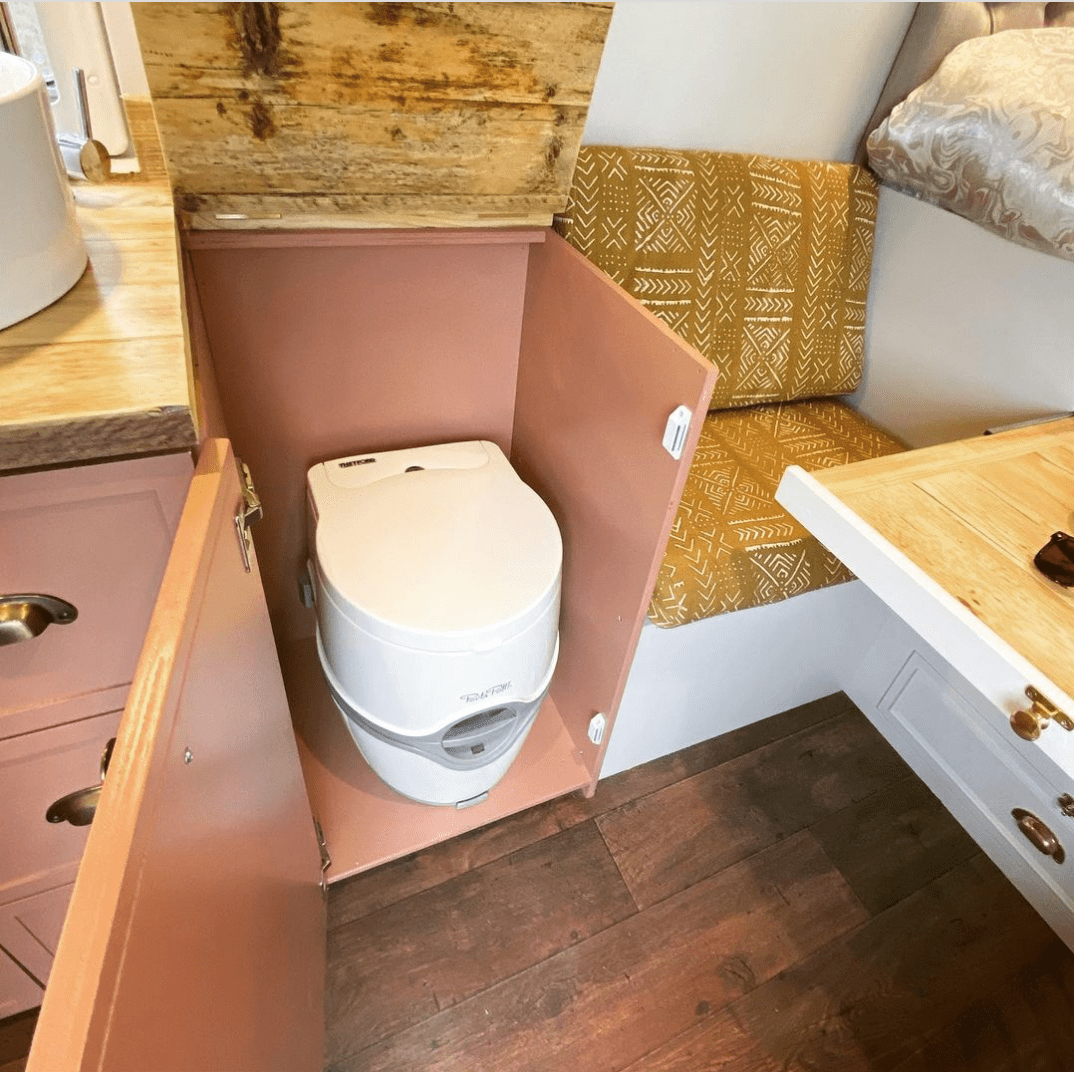
Sometimes, the fear may set in and you might not feel safe where you've parked up. It might be that dodgy-looking bloke that keeps staring through the window, or it might just be a hunch. Lock your doors and windows properly, with any added safety mechanisms that you fancy, and always park facing the exit of the area you are in so that you can make a quick getaway if necessary. And as a general rule, if it doesn't feel right, move on. And always, always text a friend or family member if you think you are in an unsafe situation. Better to be safe than sorry, as they say.
Your mental health might suffer, and to be honest, this may depend on the circumstances of your full-time living on wheels situation. If this is a dream come true, then this might not be the case. If you are doing this because of financial hardship or the breakdown of a relationship, then things might not be so easy, and if its a financial choice, then those money worries might not just magically disappear just because you don't have to pay the mortgage. Go easy on yourself, and get any help that you might need. Stay in touch with friends and family - you may well find that they become your sense of 'home', in the absence of a pile of bricks and mortar.
Sometimes, people find that it's not quite what they expected, and that's ok, regardless of what rosy images social media might portray. There's nothing like being parked up by the bins in a council car park to make you think, 'Er, how exactly did I get here in life?' It might take some adjustments, but the right path will appear. This might look like just doing the summer months on the road, for example, and then renting a small place in the winter. You'll know what's ultimately right for you.
So there you have it. Living in a motorhome full time in the UK is a lifestyle choice that comes with its own set of advantages and challenges, and for those seeking adventure, freedom and a break from traditional living, it can be an incredibly rewarding experience. There really is nothing like it for waking up in a different place each day, with the sun shining on your face and everyone sitting amicably, contemplating the day ahead. However, careful consideration of the costs, legal implications and the cold, harsh truth of the various impacts on day-to-day life is essential to make the most of this nomadic lifestyle. It takes a certain type of person to push through the difficulties of a tough winter on the road, when nobody really wants you loitering around, the toilet's up the creek and you just can't get the hob to work properly, no matter how many times you whack it. But, if you can cope with all that, then why not give it a go?
Let us know your thoughts and your experiences below…


